Why Interlock Pavers Are the Smart Choice for Walkways
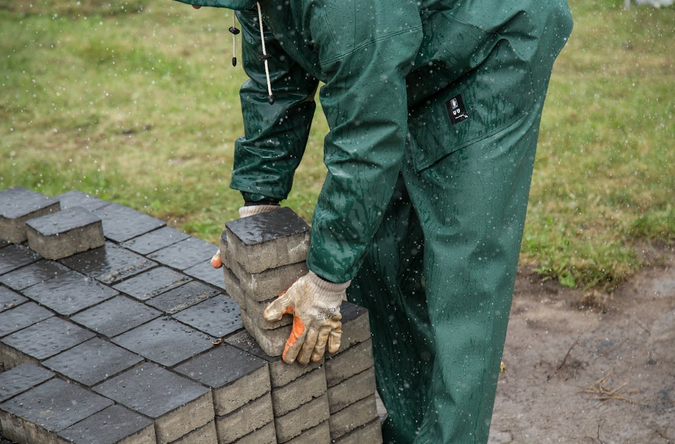
Walkways do more than guide people from one point to another. They frame your home, connect your outdoor areas, and influence first impressions. Choosing the right material for your walkway matters. Among all the available options, brick and concrete interlock pavers stand out. They combine durability, flexibility, and visual appeal. That’s why more homeowners and builders are turning to them for both residential and commercial projects.
Built for Long-Term Use
Interlock pavers are designed to last. Made from high-strength concrete or stone, they can handle regular foot traffic without breaking down. Unlike poured concrete, which can crack as the ground shifts, pavers move with the surface beneath. This flexibility makes them ideal for climates that experience freeze-thaw cycles. If one paver becomes damaged, you can replace it without tearing up the entire walkway. That makes repairs easy and cost-effective.
Visual Appeal and Versatility
Pavers come in a wide variety of colors, shapes, and textures. This gives you the freedom to create a walkway that fits your style. Whether you prefer a clean, modern look or something more rustic, there’s an interlock pattern to match. You can also blend tones or create borders and accents. This variety allows for truly unique walkways that complement any landscape. The result feels custom, not generic.
Simple Maintenance
Keeping a paver walkway clean is straightforward. Regular sweeping and occasional rinsing are usually enough to keep it looking fresh. If weeds appear between joints, they can be removed easily. Some people choose to seal their pavers, which can add protection against stains and fading. But even without sealing, the surface holds up well. The maintenance routine is much less demanding than wood decking or poured concrete alternatives.
Easy Installation and Adjustments
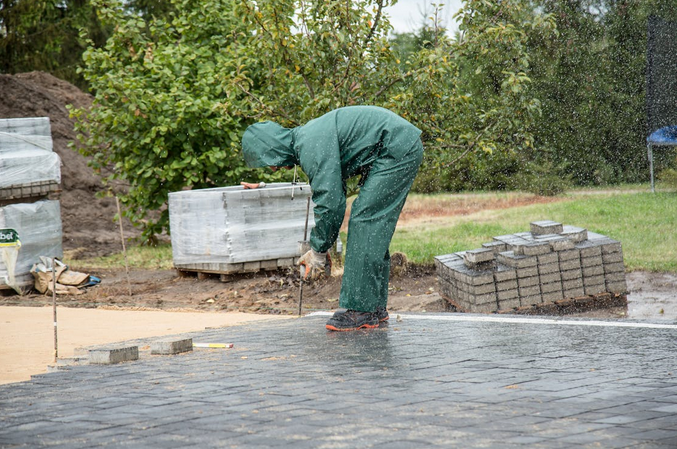
Compared to other hardscape materials, interlock pavers are relatively easy to install. A well-prepared base is key, but the actual placement can be quick. This is especially useful for DIY enthusiasts or homeowners working on a timeline. If you need to adjust the layout later, it’s possible to lift and reposition individual pavers. That flexibility makes it easier to expand, repair, or reroute a walkway over time. No need to start from scratch.
Strong Drainage and Safety
One of the standout features of interlock pavers is their joint structure. The small gaps between each paver allow water to drain through instead of pooling on the surface. This helps prevent puddles and reduces the risk of slipping. It also protects your landscaping by reducing water runoff. Proper installation with the right base layer ensures long-term stability and performance. This drainage advantage makes pavers especially useful for walkways on slopes or near garden beds.
Eco-Friendly Potential
Permeable interlock pavers offer even more environmental benefits. They’re designed to allow water to filter through and return to the ground naturally. This reduces the strain on stormwater systems. It also helps recharge groundwater supplies. Many cities now recommend or require permeable materials for new walkway projects. Choosing pavers can help meet those standards without compromising design. It’s a smart way to combine function with sustainability.
Interlock pavers offer a smart, reliable solution for walkways of all kinds. They handle wear, adapt to changes in weather, and support creative design. The result is a path that looks good, performs well, and lasts for years. With proper planning and care, paver walkways deliver value at every step. They bring structure, beauty, and safety to your outdoor space with the utmost effectiveness. For a walkway that works as hard as it looks good, interlock pavers are the clear choice.…

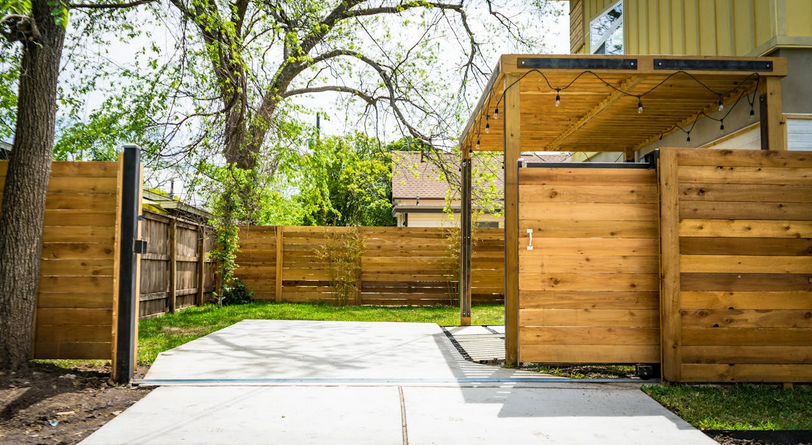
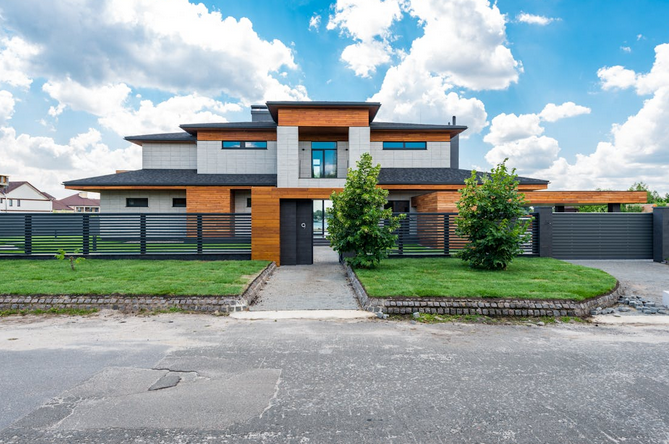








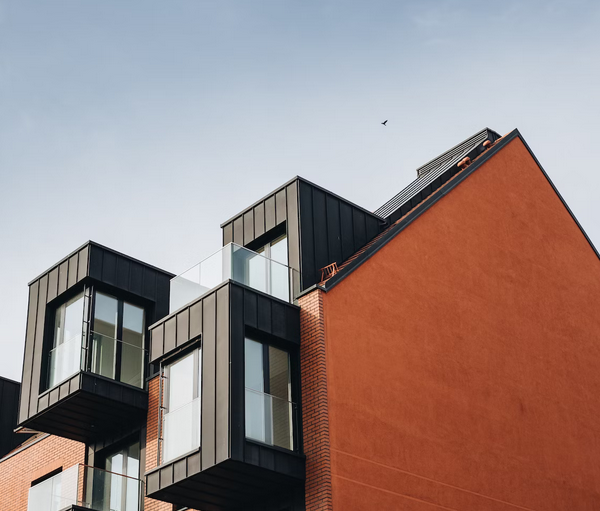
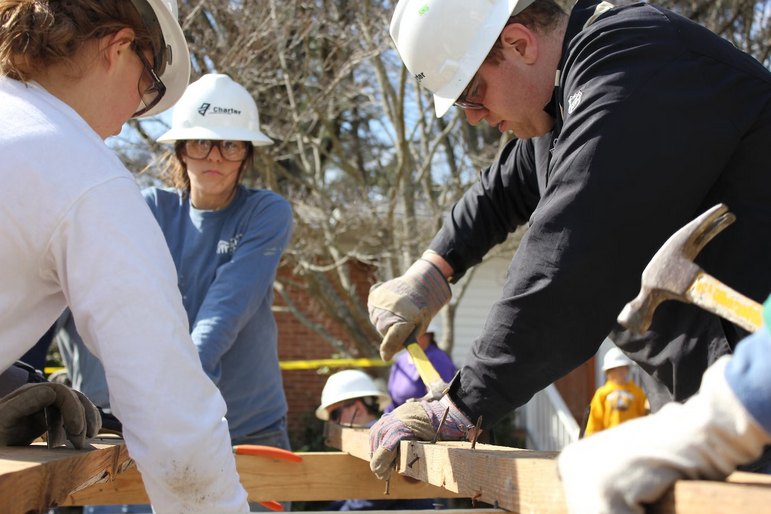
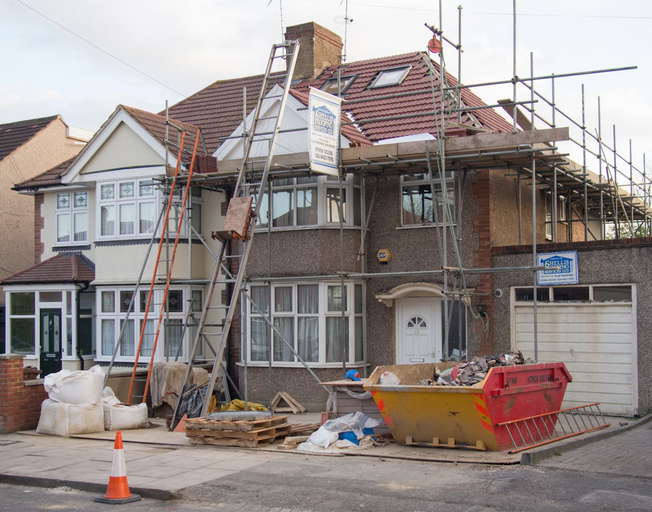


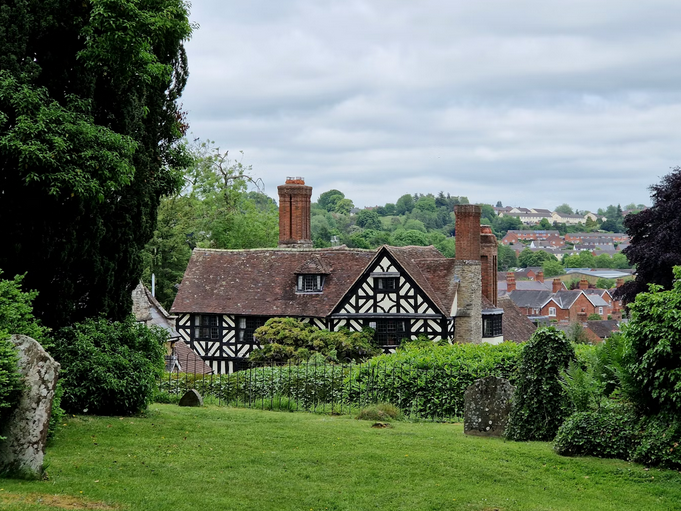

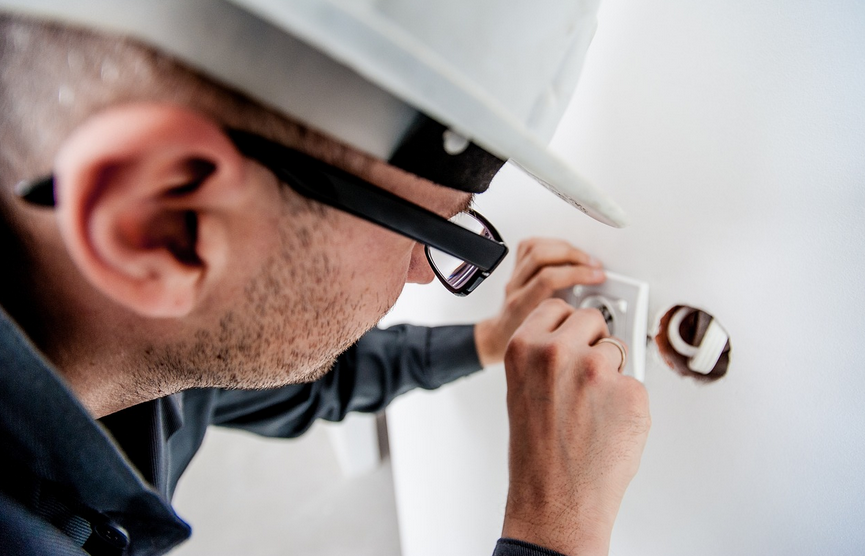
 When planning the electrical layout of your home, it’s important to think about lighting types and choices. Lighting can greatly impact the overall look and feel of a room, so it pays to consider what kind of lighting will work best for each space. Firstly, consider the function of each room. A bright overhead light may be perfect for a kitchen or study area where you need good visibility, but in a bedroom or living room, you might want softer, more ambient lighting options like lamps or dimmer switches. Secondly, take into account natural light sources. If your home has plenty of windows that let in lots of natural light during the day, you may not need as many artificial lights in those rooms.
When planning the electrical layout of your home, it’s important to think about lighting types and choices. Lighting can greatly impact the overall look and feel of a room, so it pays to consider what kind of lighting will work best for each space. Firstly, consider the function of each room. A bright overhead light may be perfect for a kitchen or study area where you need good visibility, but in a bedroom or living room, you might want softer, more ambient lighting options like lamps or dimmer switches. Secondly, take into account natural light sources. If your home has plenty of windows that let in lots of natural light during the day, you may not need as many artificial lights in those rooms. When planning the electrical layout of your home, it’s essential to identify if there are enough power points in certain areas. This may seem minor, but it can make a big difference in how functional and convenient your living space is. Consider which rooms you will frequently use appliances or electronics, such as the kitchen, living room, and bedrooms. These areas should have multiple power outlets for maximum convenience. Additionally, think about where large items such as televisions or entertainment centers will be placed so that they can easily access power sources without having cords running across the floor, creating tripping hazards. It’s also important not to forget about outdoor spaces such as patios or decks when planning for power outlets. Having an outdoor outlet available makes it easy to host events or enjoy time outside with family and friends without worrying about extension cords or finding ways to plug in devices.
When planning the electrical layout of your home, it’s essential to identify if there are enough power points in certain areas. This may seem minor, but it can make a big difference in how functional and convenient your living space is. Consider which rooms you will frequently use appliances or electronics, such as the kitchen, living room, and bedrooms. These areas should have multiple power outlets for maximum convenience. Additionally, think about where large items such as televisions or entertainment centers will be placed so that they can easily access power sources without having cords running across the floor, creating tripping hazards. It’s also important not to forget about outdoor spaces such as patios or decks when planning for power outlets. Having an outdoor outlet available makes it easy to host events or enjoy time outside with family and friends without worrying about extension cords or finding ways to plug in devices.
 One of the most important reasons why you should start growing marijuana at home is because it guarantees better quality than what you would find on the street. Growing your cannabis ensures that you know exactly where the plants come from, so there’s no risk of accidentally buying a strain with unknown genetics or contaminants. Plus, if you grow in an optimal environment, you can produce top-notch buds with high potency and flavor.
One of the most important reasons why you should start growing marijuana at home is because it guarantees better quality than what you would find on the street. Growing your cannabis ensures that you know exactly where the plants come from, so there’s no risk of accidentally buying a strain with unknown genetics or contaminants. Plus, if you grow in an optimal environment, you can produce top-notch buds with high potency and flavor. When it comes to growing cannabis, you ultimately control the process. You can choose which strains you want to cultivate and how much time and effort you want to put into the growth. This gives you great satisfaction, knowing that your hard work and dedication have gone into producing the herb. In addition, you can also experiment with different growing methods to find what works best for your unique setup.
When it comes to growing cannabis, you ultimately control the process. You can choose which strains you want to cultivate and how much time and effort you want to put into the growth. This gives you great satisfaction, knowing that your hard work and dedication have gone into producing the herb. In addition, you can also experiment with different growing methods to find what works best for your unique setup.
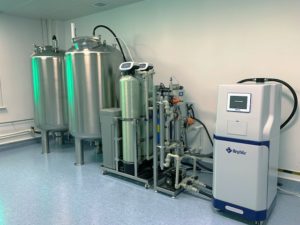 A water filter system is a great addition to any home. Not only does it provide you with clean drinking water, but it can also save you money on your monthly water bill. There are many different types of water filtration systems available on the market, so be sure to do your research before making a purchase. This is so you can ensure that you get the right product for your needs. If you want to know how to find the best water filter system for your home, visit
A water filter system is a great addition to any home. Not only does it provide you with clean drinking water, but it can also save you money on your monthly water bill. There are many different types of water filtration systems available on the market, so be sure to do your research before making a purchase. This is so you can ensure that you get the right product for your needs. If you want to know how to find the best water filter system for your home, visit  A smoke detector is an important safety device that every home should have. This simple device can save lives by alerting you to the presence of fire or smoke. Be sure to install a smoke detector in every room of your house and the hallways. You should also regularly test your smoke detectors to ensure they are working properly. Many houses have been saved from destruction by smoke detectors, so this is one item that you should not neglect.
A smoke detector is an important safety device that every home should have. This simple device can save lives by alerting you to the presence of fire or smoke. Be sure to install a smoke detector in every room of your house and the hallways. You should also regularly test your smoke detectors to ensure they are working properly. Many houses have been saved from destruction by smoke detectors, so this is one item that you should not neglect.
 One quality to look for in an appliance repair company is personal service. This means that the company should take the time to get to know you and your needs. They should be able to provide you with a personalized experience that meets your specific needs. A great appliance repair company will make you feel like they genuinely care about their customers and satisfaction. In addition, they should be available to answer any questions you may have.
One quality to look for in an appliance repair company is personal service. This means that the company should take the time to get to know you and your needs. They should be able to provide you with a personalized experience that meets your specific needs. A great appliance repair company will make you feel like they genuinely care about their customers and satisfaction. In addition, they should be available to answer any questions you may have. The next quality to look for is incredible product knowledge. This means that the company should have a deep understanding of the products they are repairing. They should be able to answer any questions you have about the repair process and the appliance itself. In addition, they should be able to provide you with tips and advice on how to maintain your device. A great appliance repair company will always put their customers first and ensure they are satisfied with the results by offering great knowledge.
The next quality to look for is incredible product knowledge. This means that the company should have a deep understanding of the products they are repairing. They should be able to answer any questions you have about the repair process and the appliance itself. In addition, they should be able to provide you with tips and advice on how to maintain your device. A great appliance repair company will always put their customers first and ensure they are satisfied with the results by offering great knowledge.
 Concrete flooring is a type of flooring that is made from concrete. This material is solid and durable, making it an excellent option for flooring. Concrete flooring can be polished to create a beautiful shine or left with a natural finish. Moreover, concrete is made from cement, aggregate, and water. It means that it is a very sturdy material that can withstand wear and tear. Concrete flooring is a popular choice for many homeowners because it is affordable and durable.
Concrete flooring is a type of flooring that is made from concrete. This material is solid and durable, making it an excellent option for flooring. Concrete flooring can be polished to create a beautiful shine or left with a natural finish. Moreover, concrete is made from cement, aggregate, and water. It means that it is a very sturdy material that can withstand wear and tear. Concrete flooring is a popular choice for many homeowners because it is affordable and durable. So that you’ve known what
So that you’ve known what 
 You must select a plumber with the experience and qualifications necessary to handle your specific repair or installation. Ask the plumber about their experience with the type of plumbing issue you are experiencing.
You must select a plumber with the experience and qualifications necessary to handle your specific repair or installation. Ask the plumber about their experience with the type of plumbing issue you are experiencing.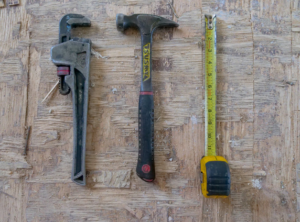 Although plumbing may seem like an easy trade to some, it’s a skilled profession that takes many years of practice to perfect. That’s why it’s crucial only to hire a licensed and insured plumber to work on your home plumbing system.
Although plumbing may seem like an easy trade to some, it’s a skilled profession that takes many years of practice to perfect. That’s why it’s crucial only to hire a licensed and insured plumber to work on your home plumbing system.
 One way to enjoy music is by buying records. Records are like CDs, but some audiophiles believe they sound better than their digital counterparts. Also, some people find it more satisfying to own physical copies of their favorite albums or songs instead of having them stored on a hard drive somewhere. If you’re interested in giving vinyl a try, there are a few things you should keep in mind. First, you’ll need to buy a turntable if you don’t already have one. Second, make sure that the records you believe are in good condition; otherwise, they may not sound as good as they could.
One way to enjoy music is by buying records. Records are like CDs, but some audiophiles believe they sound better than their digital counterparts. Also, some people find it more satisfying to own physical copies of their favorite albums or songs instead of having them stored on a hard drive somewhere. If you’re interested in giving vinyl a try, there are a few things you should keep in mind. First, you’ll need to buy a turntable if you don’t already have one. Second, make sure that the records you believe are in good condition; otherwise, they may not sound as good as they could.
 When designing a stage for an 80s style concert, the most important thing is to decide on a theme. It will help you determine the look and feel of your show. Popular points for 80s style concerts include neon colors, geometric patterns, pop art, and bright blue, green, and pink.
When designing a stage for an 80s style concert, the most important thing is to decide on a theme. It will help you determine the look and feel of your show. Popular points for 80s style concerts include neon colors, geometric patterns, pop art, and bright blue, green, and pink. If you want to make money off of your 80s-themed party, then set up a concession stand. Turn one end of the stage into an area where guests can buy snacks and drinks using their tickets or cash. You could even offer them some neon glow sticks as they walk in! If you want to get creative with it, set up a bar and serve some popular cocktails during the 80s. It will help create an even more authentic atmosphere for your party.
If you want to make money off of your 80s-themed party, then set up a concession stand. Turn one end of the stage into an area where guests can buy snacks and drinks using their tickets or cash. You could even offer them some neon glow sticks as they walk in! If you want to get creative with it, set up a bar and serve some popular cocktails during the 80s. It will help create an even more authentic atmosphere for your party.
 Window blinds come in all shapes and sizes, so it’s essential to measure the space you’re looking to cover before you go shopping. It will help ensure that you get the right size blinds for your windows.
Window blinds come in all shapes and sizes, so it’s essential to measure the space you’re looking to cover before you go shopping. It will help ensure that you get the right size blinds for your windows. It will help if you have an idea of the style of blinds you want before shopping. Do you want something that’s going to cover up your entire window or just a portion? Are you looking for something sleek and modern or more traditional? There are all sorts of different styles to choose from, so take some time to browse through pictures online or in-home design magazines to get an idea.
It will help if you have an idea of the style of blinds you want before shopping. Do you want something that’s going to cover up your entire window or just a portion? Are you looking for something sleek and modern or more traditional? There are all sorts of different styles to choose from, so take some time to browse through pictures online or in-home design magazines to get an idea. There are a lot of blinds out there, and they vary in price. However, you don’t need to break the bank for good-quality blinds. Fiberglass or faux wood is going to be your best bet if you’re working with a limited budget. The materials are more affordable than real wood while still providing durability and offering plenty of style options.
There are a lot of blinds out there, and they vary in price. However, you don’t need to break the bank for good-quality blinds. Fiberglass or faux wood is going to be your best bet if you’re working with a limited budget. The materials are more affordable than real wood while still providing durability and offering plenty of style options.
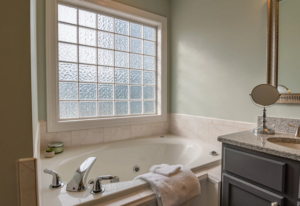 Tiles are an essential part of the bathroom, and you can choose any design or color that suits your taste. If you want to add a touch of elegance into your space, opt for marble tiles because they look luxurious without having to spend too much money on them. If you already have decent size tiles in your toilet but don’t like their design, you can buy tiles and replace the old ones. It is a cheaper option than getting all new tiles on your walls and ceiling since it will just require some time and effort, but if done right, it’ll look fantastic!
Tiles are an essential part of the bathroom, and you can choose any design or color that suits your taste. If you want to add a touch of elegance into your space, opt for marble tiles because they look luxurious without having to spend too much money on them. If you already have decent size tiles in your toilet but don’t like their design, you can buy tiles and replace the old ones. It is a cheaper option than getting all new tiles on your walls and ceiling since it will just require some time and effort, but if done right, it’ll look fantastic!
 Overgrown branches can cause trees to become enormous and more dangerous. In this case, people want to hire a professional tree removal company to cut down those overgrown branches before being blown away by a hurricane and harm your property. Not only will they cut the overgrown branches, but they will also make sure that the property is free from the dangers posed by the overgrown branches and trees.
Overgrown branches can cause trees to become enormous and more dangerous. In this case, people want to hire a professional tree removal company to cut down those overgrown branches before being blown away by a hurricane and harm your property. Not only will they cut the overgrown branches, but they will also make sure that the property is free from the dangers posed by the overgrown branches and trees.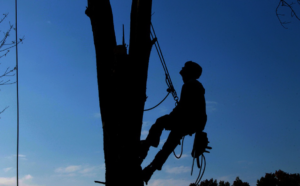 You probably know that tree removal can take a lot of time. Besides, you will have a lot of energy and strength to finish this task. It is especially true if you only use your
You probably know that tree removal can take a lot of time. Besides, you will have a lot of energy and strength to finish this task. It is especially true if you only use your 
 Old, inefficient appliances consume a lot of money and resources compared to new ones. For example, an air filter that hasn’t been serviced in a long time will likely use more energy than one cleaned recently. The same also goes for
Old, inefficient appliances consume a lot of money and resources compared to new ones. For example, an air filter that hasn’t been serviced in a long time will likely use more energy than one cleaned recently. The same also goes for  Maintaining your home is an excellent way to improve your living experience. It is much nicer to live in a house with a quiet furnace or air purifier. Regular maintenance of your home makes your life easier because you won’t have to deal with the excessive noise of a creaking door, unlubricated car parts, or cleaning a leaky roof. You will also feel more confident in the integrity of your home. Your house will be safer and more comfortable.…
Maintaining your home is an excellent way to improve your living experience. It is much nicer to live in a house with a quiet furnace or air purifier. Regular maintenance of your home makes your life easier because you won’t have to deal with the excessive noise of a creaking door, unlubricated car parts, or cleaning a leaky roof. You will also feel more confident in the integrity of your home. Your house will be safer and more comfortable.…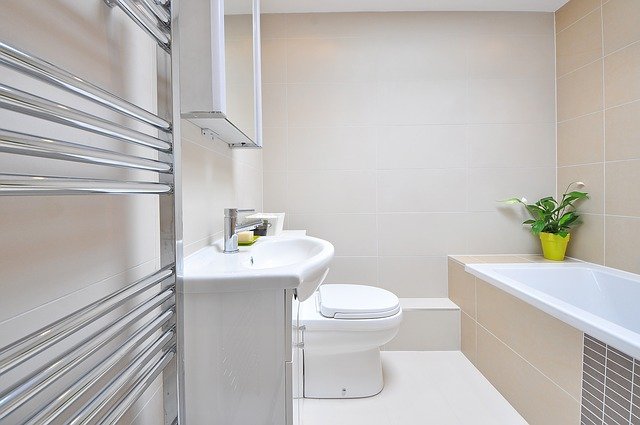
 The function of the bathroom is the next important aspect. You can specify what fixtures and fittings are needed. Common fixtures include a sink, toilet, shower, and bathtub. However, you can also order special fixtures, such as a bidet. The number of bathrooms is determined by the number of fixtures and the space available. Generally, a bathroom is called a “half-bath” or “powder room” if it contains two fixtures: a sink and a toilet. A “three-quarter bath” has this basic fixture plus a shower.
The function of the bathroom is the next important aspect. You can specify what fixtures and fittings are needed. Common fixtures include a sink, toilet, shower, and bathtub. However, you can also order special fixtures, such as a bidet. The number of bathrooms is determined by the number of fixtures and the space available. Generally, a bathroom is called a “half-bath” or “powder room” if it contains two fixtures: a sink and a toilet. A “three-quarter bath” has this basic fixture plus a shower. Although the bathroom door is usually closed, there are many occasions when it can be left open. Think about what you can see through the open door. It’s nicer to see the sink than the toilet. When determining sightlines into a space, take a string or pencil and draw straight lines from one fixture to the other. This way, you will be able to determine the sightlines of a room. If the
Although the bathroom door is usually closed, there are many occasions when it can be left open. Think about what you can see through the open door. It’s nicer to see the sink than the toilet. When determining sightlines into a space, take a string or pencil and draw straight lines from one fixture to the other. This way, you will be able to determine the sightlines of a room. If the 
 Homeowners can save themselves effort and money with the help of these farming power tools. From regularly mowing the lawn to unevenly vacuuming leaves in the fall, mechanized farming and garden tools offer the added benefit and advantage in terms of work efficiency. Furthermore, homeowners do not always have to be avid farmers or gardeners to enjoy the power of mechanized farming tools. It is especially true for those who have homes located in those areas with dense, invasive grass and many different types of plants.
Homeowners can save themselves effort and money with the help of these farming power tools. From regularly mowing the lawn to unevenly vacuuming leaves in the fall, mechanized farming and garden tools offer the added benefit and advantage in terms of work efficiency. Furthermore, homeowners do not always have to be avid farmers or gardeners to enjoy the power of mechanized farming tools. It is especially true for those who have homes located in those areas with dense, invasive grass and many different types of plants. Many power tools are designed specifically for farms. In this case, these power tools could be considered essential to the regular rural work routine. Some of these garden tools are incredibly useful, especially when it comes to the regular maintenance of a pampered farmhouse. For instance,
Many power tools are designed specifically for farms. In this case, these power tools could be considered essential to the regular rural work routine. Some of these garden tools are incredibly useful, especially when it comes to the regular maintenance of a pampered farmhouse. For instance,  Other farming-saving power tools may include firewood logs and log splitters. All of these tools are beneficial for heavy-duty work. They may not be practical for ordinary homes, but they can be necessary for plantation properties and lumber companies. People living in remote rural areas can benefit greatly from these motorized tools. Households that need firewood regularly will not have to make much effort with the help of these tools. The use of these tools will likely be similar to having tens of thousands of axes and workers chopping wood simultaneously.
Other farming-saving power tools may include firewood logs and log splitters. All of these tools are beneficial for heavy-duty work. They may not be practical for ordinary homes, but they can be necessary for plantation properties and lumber companies. People living in remote rural areas can benefit greatly from these motorized tools. Households that need firewood regularly will not have to make much effort with the help of these tools. The use of these tools will likely be similar to having tens of thousands of axes and workers chopping wood simultaneously.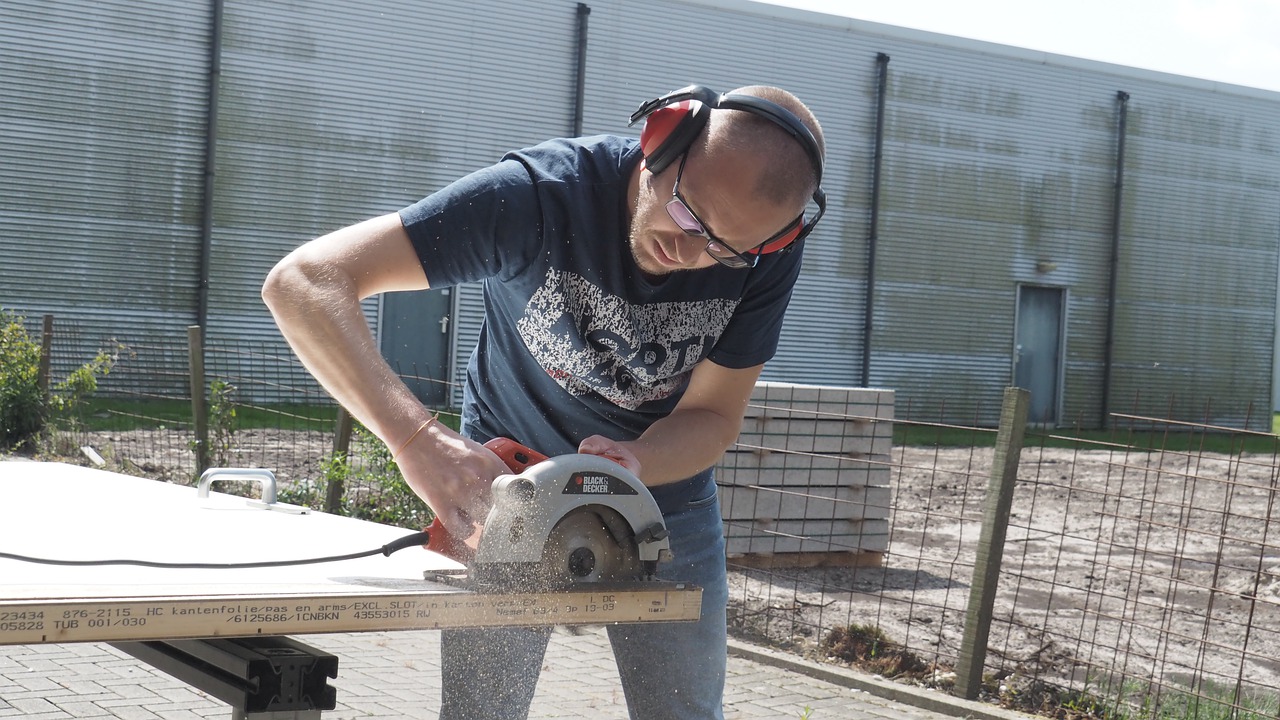
 Have you ever set about a DIY project that needs dozens or even hundreds of screws to hold it all together? If that’s your case, you might have thought about using your drill or impact driver with an appropriate bit for fastening screws. Though drills for tightening screws is appropriate, it is not effective, however. For starters, some bits don’t have different grades. Another disadvantage is that they are heavy to survive for a long time. This is exactly why it makes sense to use a lighter screw gun. For instance, if you’re working on a plasterboard, the best drywall screw gun will make light work of the task.
Have you ever set about a DIY project that needs dozens or even hundreds of screws to hold it all together? If that’s your case, you might have thought about using your drill or impact driver with an appropriate bit for fastening screws. Though drills for tightening screws is appropriate, it is not effective, however. For starters, some bits don’t have different grades. Another disadvantage is that they are heavy to survive for a long time. This is exactly why it makes sense to use a lighter screw gun. For instance, if you’re working on a plasterboard, the best drywall screw gun will make light work of the task. Jigsaws are the perfect gift for people who love to solve problems. But this jigsaw is a powerful tool that makes it easy to make curved cuts in objects like sheets of wood. Jigsaws are without a doubt the cheapest power tools you can buy, and the easiest to use. They can be found in a selection of prices, but none will break your wallet. Try to avoid the cheaper ones and try to get some in the mid-range to make sure you have a decent tool that will make some specific cuts. For those of you who have spent a lot of time making your cuts, then stop wasting your time and buy a jigsaw.
Jigsaws are the perfect gift for people who love to solve problems. But this jigsaw is a powerful tool that makes it easy to make curved cuts in objects like sheets of wood. Jigsaws are without a doubt the cheapest power tools you can buy, and the easiest to use. They can be found in a selection of prices, but none will break your wallet. Try to avoid the cheaper ones and try to get some in the mid-range to make sure you have a decent tool that will make some specific cuts. For those of you who have spent a lot of time making your cuts, then stop wasting your time and buy a jigsaw. This tool will be perfect if your miter saw and jigsaw do not meet the required cutting length or precision of a bracket. With the circular saw, you can also do a fantastic job of reducing the …
This tool will be perfect if your miter saw and jigsaw do not meet the required cutting length or precision of a bracket. With the circular saw, you can also do a fantastic job of reducing the …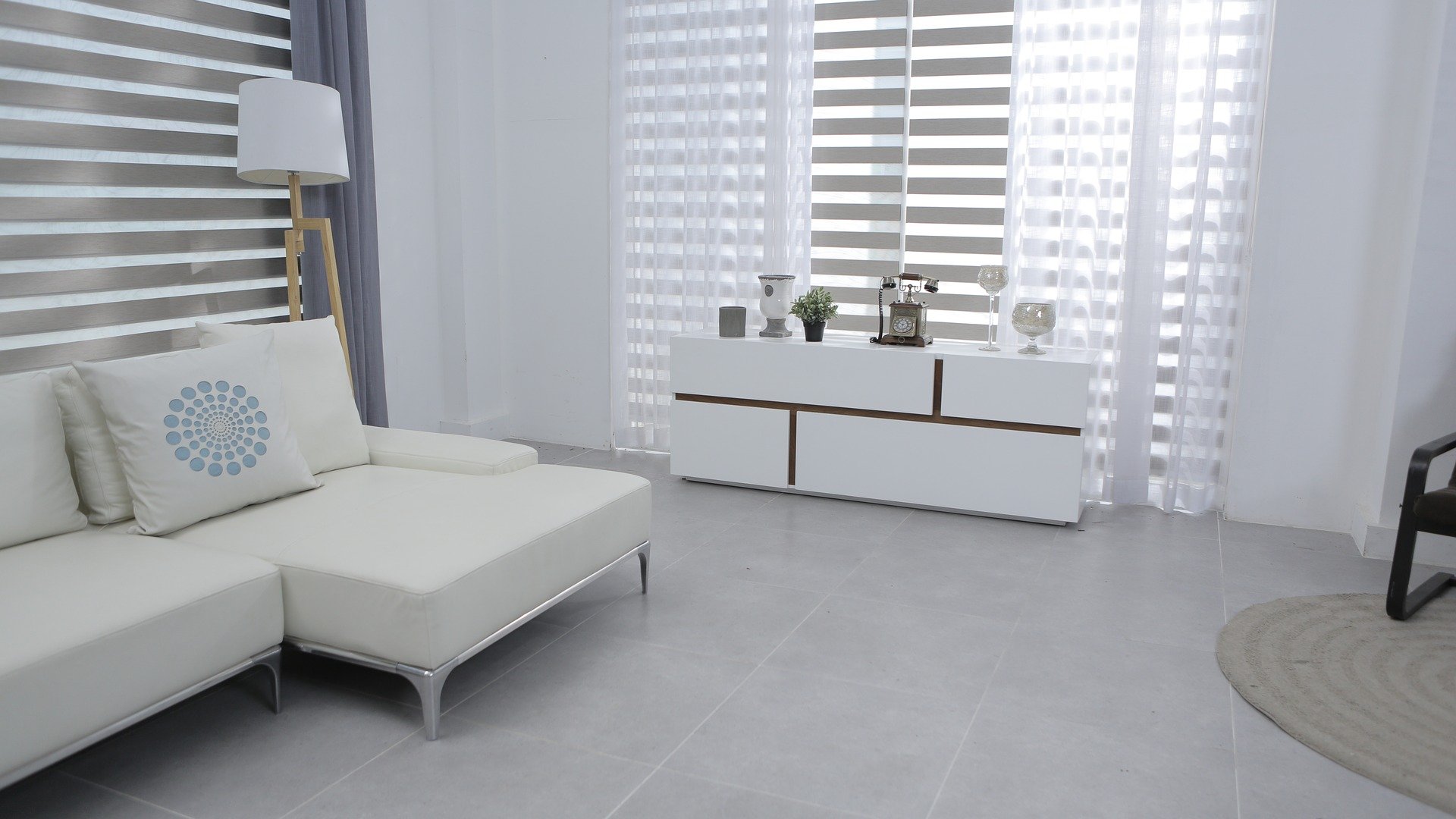
 The most common means of acquiring a hidden bed plan is a sofa mattress. This is what usually comes to mind when you think of a temporary bed that has a dual function. There are many varied mechanisms to hide a bed in the sofa design – pull out, rearrange cushions, modular arrangement, but usually, to fit the mattress inside a sofa there is a compromise with all the thickness and degree of mattress provided sleep arrangement will probably change the degree of rest of your night. The sofa bed solution is great for sleepovers, guests, and occasional sleeping, but not for a long time in place of the main mattress.
The most common means of acquiring a hidden bed plan is a sofa mattress. This is what usually comes to mind when you think of a temporary bed that has a dual function. There are many varied mechanisms to hide a bed in the sofa design – pull out, rearrange cushions, modular arrangement, but usually, to fit the mattress inside a sofa there is a compromise with all the thickness and degree of mattress provided sleep arrangement will probably change the degree of rest of your night. The sofa bed solution is great for sleepovers, guests, and occasional sleeping, but not for a long time in place of the main mattress. This idea resembles the presence of the internal structure of the sofa bed, but with a few more advantages – the chair mattress takes up less space – a great advantage if you are dealing with tight prerequisites; it is much more elastic to organize the internal composition and offers the possibility to introduce more than one bed to your interior, accommodating more than one guest. The Romeo char futon offers a contemporary, clean aesthetic with simple lines that suits a wide range of interior design combinations.
This idea resembles the presence of the internal structure of the sofa bed, but with a few more advantages – the chair mattress takes up less space – a great advantage if you are dealing with tight prerequisites; it is much more elastic to organize the internal composition and offers the possibility to introduce more than one bed to your interior, accommodating more than one guest. The Romeo char futon offers a contemporary, clean aesthetic with simple lines that suits a wide range of interior design combinations.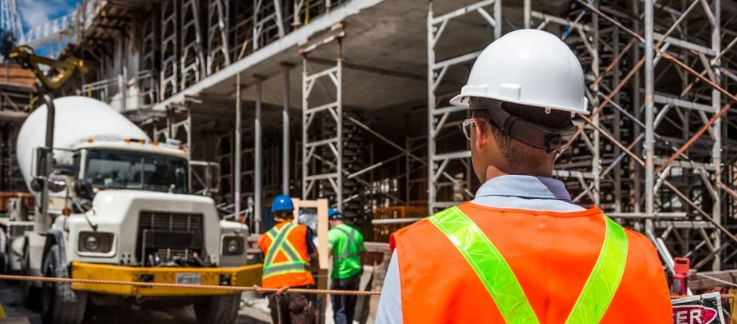
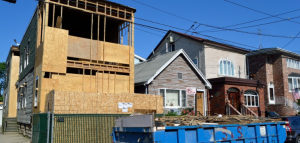 If you are more likely to enlist a contractor’s help, you will want someone who is appropriately trained in the trade. By checking with the board, you can confirm that the contractor is licensed, and you can also find out the specialty areas in which the contractor is licensed. When evaluating certification, ask the contractor for his or her pocket license and other identification. Since it is illegal for a contractor to use another contractor’s license, a recommended contractor will have matching identification.
If you are more likely to enlist a contractor’s help, you will want someone who is appropriately trained in the trade. By checking with the board, you can confirm that the contractor is licensed, and you can also find out the specialty areas in which the contractor is licensed. When evaluating certification, ask the contractor for his or her pocket license and other identification. Since it is illegal for a contractor to use another contractor’s license, a recommended contractor will have matching identification. For anyone looking to make extensive home repairs or create a new construction, home contractors are essential. Before you get into the habit of selecting home contractors, you need to develop an idea of what the plan will be for your company. Knowing in advance what the job will look like will allow you to give a more accurate estimate when you begin your search for a construction professional. Think about the shape of the material needed, the project’s size and scope, and various other details associated with almost any building.
For anyone looking to make extensive home repairs or create a new construction, home contractors are essential. Before you get into the habit of selecting home contractors, you need to develop an idea of what the plan will be for your company. Knowing in advance what the job will look like will allow you to give a more accurate estimate when you begin your search for a construction professional. Think about the shape of the material needed, the project’s size and scope, and various other details associated with almost any building.
 Total Control of Your Home
Total Control of Your Home
 You can put in these fixtures as many as you need, taking into account your needs. You just need to make sure that your ceiling is not too low and the lights are not too uncomfortable. Otherwise, it might affect your eyes a lot. You can put them in your kitchen, living room, dining room, and bedroom. Just pay attention to the capacity of these lights. But only in houses with high ceilings, you can use these lights, because if you have low ceilings, you can bump into them every time you walk.
You can put in these fixtures as many as you need, taking into account your needs. You just need to make sure that your ceiling is not too low and the lights are not too uncomfortable. Otherwise, it might affect your eyes a lot. You can put them in your kitchen, living room, dining room, and bedroom. Just pay attention to the capacity of these lights. But only in houses with high ceilings, you can use these lights, because if you have low ceilings, you can bump into them every time you walk. Landscape lighting is the best way to use these lights is to simply install them in your outdoor areas. It will add extra beauty and charm to an outdoor setting and illuminate the entire yard with beautiful lights. Residential lighting affects just about everyone and is often overlooked in terms of design. Satisfactory home lighting provides enough illumination to perform household tasks, feel comfortable and be easy to control.
Landscape lighting is the best way to use these lights is to simply install them in your outdoor areas. It will add extra beauty and charm to an outdoor setting and illuminate the entire yard with beautiful lights. Residential lighting affects just about everyone and is often overlooked in terms of design. Satisfactory home lighting provides enough illumination to perform household tasks, feel comfortable and be easy to control.


 When decorating a room, people often forget about utilizing the windows. Placing furniture has to consider the light coming into your area. Also, see how it affects the big picture. In this case, it is crucial to put windows into consideration of your consideration.
When decorating a room, people often forget about utilizing the windows. Placing furniture has to consider the light coming into your area. Also, see how it affects the big picture. In this case, it is crucial to put windows into consideration of your consideration.  When it comes to room decoration, it would be best to avoid clutter to choose furniture. Also, make an effort not to buy accent pieces just because they look good. Most people who have a lot of furniture tend to throw anything when moving out. Thus, you should select the essential clutter to decorate your room.
When it comes to room decoration, it would be best to avoid clutter to choose furniture. Also, make an effort not to buy accent pieces just because they look good. Most people who have a lot of furniture tend to throw anything when moving out. Thus, you should select the essential clutter to decorate your room.  Many people do a great job with decorating and furnishing, but they trap in what looks bland and boring. You can brighten up the brown or beige curtains by hanging a couple of orange drapes on either side of the main curtains.
Many people do a great job with decorating and furnishing, but they trap in what looks bland and boring. You can brighten up the brown or beige curtains by hanging a couple of orange drapes on either side of the main curtains.
